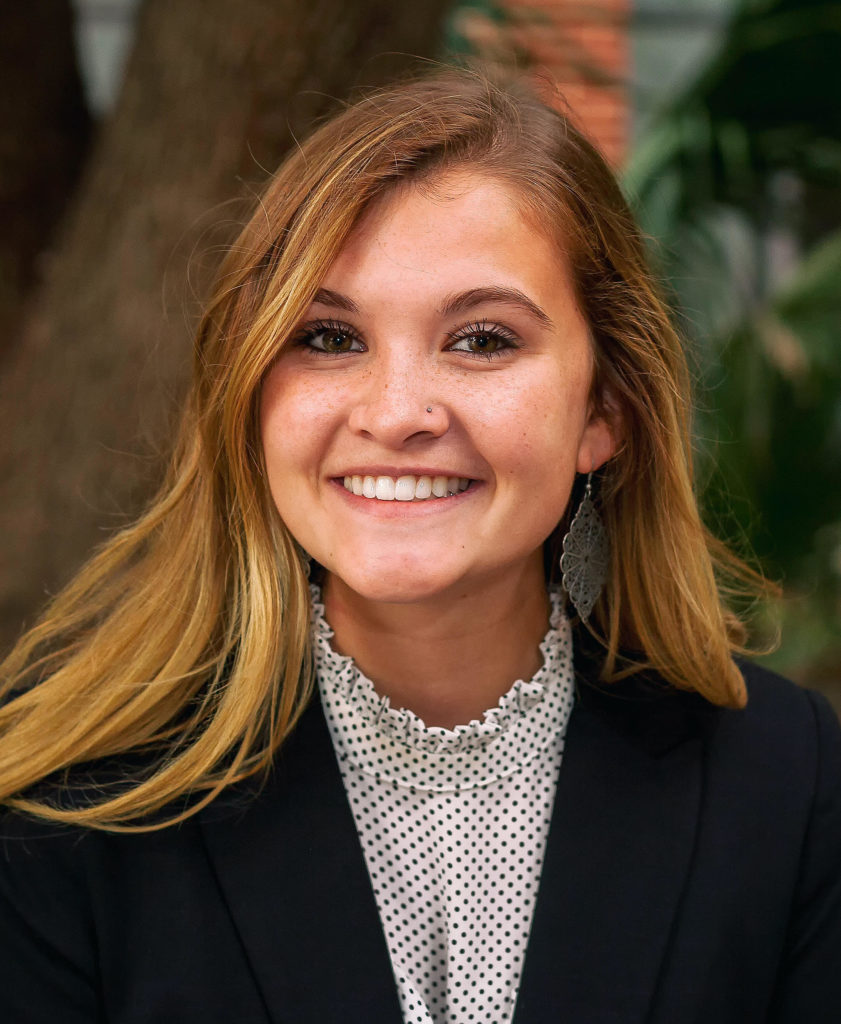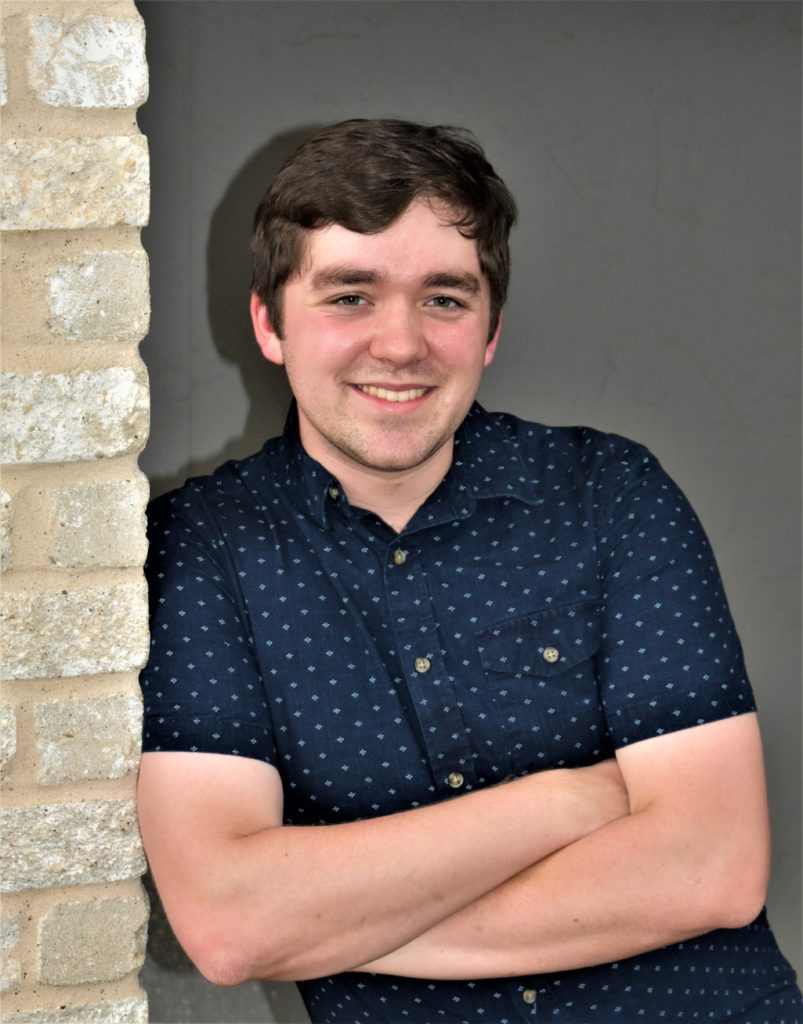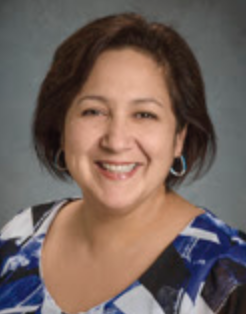CITY OF WACO NEWS RELEASE
Over the past two weeks, McLennan County has seen a rapid increase in number of COVID-19 cases. As Texas continues to reopen, it is important to remember that COVID-19 has not been contained. The virus is still circulating in our community. As more people are going back to regular routines, the opportunity for exposure to COVID-19 increases.
There are five clusters involving households. If there is a COVID-19 positive person in your home, there are steps you can take to minimize the risk of exposure to the rest of the people in the home.
- The sick person should not leave the house. Have a someone else run errands for the sick person.
- As much as possible, have the sick person stay in a specific room and away from other people and pets in the home. This includes all actives including eating meals or watching TV together.
- Assign one person to take care of the sick person. This person should maintain a 6 ft distance when possible, wear a cloth face covering and wash their hands after each interaction with the sick person.
- If possible, the sick person should use a separate bathroom. It that is not possible, keep the sick person’s personal items, like a toothbrush and towels separate and disinfect high touch areas after every use.
- If the sick person needs to be around other people or animals, they should wear a cloth face covering.
COVID-19 is a virus that is spread person-to-person through respiratory droplets when an infected person coughs, sneezes or talks. It is also possible that the virus can spread by touching surfaces or objects that have the virus on it and then touching the eyes, nose, and mouth. The best way to protect yourself from COVID-19 is to continue to follow the tried and true methods of social distancing. These simple steps can significantly influence the rate of increase in McLennan County.
The Executive Order issued by Waco Mayor Kyle Deaver on June 19, 2020 is an important measure to slow the spread of COVID-19 by requiring all employees and visitors of a business to wear face coverings. This simple step along with the other social distancing guidelines are the best protection we have against COVID-19. By following them, you protect yourself and your community.
Social Distancing guidelines:
- Keep 6 feet apart from others. Respiratory droplets generally can travel 6 feet in the air. The closer you are to a person the easier it is for the droplets to reach you.
- Wear a face covering to lessen the spread of respiratory droplets when you speak. The face covering creates a barrier that stops the droplets before they spread to another person. Your face covering protects the people around you.
- Washing your hands. If you have the droplets on you hand and you touch your face, you are putting the virus into your body. Washing your hands frequently removes the virus from your body.
- Clean and disinfect surfaces. Keep surfaces like door handles and counters clean to stop contamination by the virus.
Compiled by Karol Hardin, Associate Professor of Spanish, Baylor University
- Las estadísticas en Waco / Waco statistics
- La conferencia de prensa más reciente en Waco con traducción en español / Waco’s most recent press conference with Spanish translation
- Recomendaciones del estado de Texas / Texas State Recommendations
- Recomendaciones del estado de Texas para individuos / Texas State Recommendations for individuals (attached document)
- Información del CDC sobre las pruebas para detectar el COVID-19 / CDC information about testing for COVID-19:
- Videos del CDC sobre COVID-19 / CDC videos about COVID-19:
- Recomendaciones del CDC para protección de la cara / CDC recommendations for face coverings
- Organización Mundial de Salud / World Health Organization
- Folletos educativos y mensajes para la radio sobre el COVID-19 (del estado de Carolina del Sur) / COVID educational flyers and radio messages (State of South Carolina)
- Centro de Salud Familiar (Family Health Center), Waco — Protocolos para auto-aislamiento y cuarentena / Family Health Center, Waco protocols for self-isolation and quarantine
- Libro para niños sobre el COVID-19 (en español) / Children’s book about COVID-19 (in Spanish):
- Página de Facebook para Family Health Center, Waco con videos en español e inglés—entrevistas con médicos, una abogada, etc. relacionados al coronavirus / Facebook page with videos in English and Spanish—interviews with doctors, immigrant lawyer, etc. related to coronavirus
| NEWS RELEASE The Deep in the Heart Film Festival announces its 2020 film program, including a selection of films, music videos, and screenplays coming to the Waco Hippodrome, Aug. 6-9. “With all that is going on in this world, it’s important for us to listen to each other’s stories — what better way than through film? We see Deep in the Heart as an opportunity to bring communities together,” says Samuel Thomas, artistic director. The fourth annual festival will attract artists and filmmakers from all over the world for four days packed with entertainment, learning, and the celebration of film as an art form. This year, with concerns over COVID-19, the festival will operate as a hybrid event, with live in-person screenings at the Waco Hippodrome, as well as an online streaming component. “We’re working with our venues and sponsors to host a safe and healthy event. We know our audience will make the best choices for themselves, and we are happy to be able to share these films with our Waco audience both in the theater and online.” says Thomas. Film highlights include: “Seven Short Films About (Our) Marriage” — Baylor University film professor Chris Hansen directs a tempestuous romantic drama in seven vignettes that chronicle an interracial marriage, telling a story of turmoil and tenderness as two people try to make their relationship last. This screening at the Deep in the Heart Film Festival will mark the first time local audiences will be able to see it on the big screen. It was filmed throughout Waco in 2018. Q&A with the director to follow. “Anna” — It’s the story of a single, middle-aged mother who lives in war-torn eastern Ukraine, raises her daughter, and desperately seeks change. “Anna” is a surprising short film with lots of heart and laughs. It premiered at the Cannes Film Festival and won the prestigious BAFTA award. “Lockdown” — The threat of a shooting closes a middle school, but the true nature of the lockdown adds layers of depth and an exploration of self. This Sundance short film marks the return of alumni filmmakers Celine Held and Logan George, winners of last year’s Best Short Film, “Caroline.” “Dream With Me” — This feature-length Texas documentary follows Saba, one of more than 800,000 “Dreamers” who took advantage of the DACA (Deferred Action for Childhood Arrivals, an Obama-era program) in 2012. Now, with the Trump administration’s decision to rescind DACA, her immigration status is once again in limbo, and Saba must face a new set of challenges. Deep in the Heart celebrates excellence in independent film, both around the world and in Texas. Many of the films selected have played notable festivals, such as Cannes, Sundance, Austin, Clermont-Ferrand, and Cork. We are proud to bring these quality films to Central Texas. Additionally, for the first time, Deep in the Heart will host live readings from its screenplay contest. For a full list of films, videos, and screenplays, please visit our website, DeepInTheHeartFF.com. About Deep in the Heart Film Festival Set in Waco the Deep in the Heart Film Festival runs Aug. 6-9, 2020, and will feature engaging, independent short films, music videos, screenplays and features from Texas, the U.S., and the world. We want to inspire audiences, foster beneficial networking for filmmakers, and show all of our guests some authentic Texas hospitality. For more information visit www.deepintheheartff.com. About the Waco Hippodrome The Waco Hippodrome Theatre is a 100-year-old theatre in the heart of downtown Waco. The theatre has survived many trials and tribulations including a fire and the devastating tornado of 1953. In 2012 the Hippodrome was bought and renovated after sitting vacant and dilapidated for several years. It reopened its doors in 2014 as a dine-in movie theatre, bar, restaurant, and entertainment venue featuring live music. The Hippodrome looks forward to serving its community for another 100 years. See what we have going on each day at www.wacohippodrometheatre.com and follow them on Facebook, Instagram and Twitter: @wacohippodrometheatre. Samuel Z. P. Thomas Artistic Director Deep in the Heart Film Festival 712 Austin Ave Waco, TX 76701 [email protected] 817-800-0643 |
NEWS RELEASE
The Dr Pepper Museum & Free Enterprise Institute is launching a new exciting experience for Dr Pepper super fans. The Extreme Pepper Experience is an exclusive tour of the entire Museum. Guests will hear the stories behind the legendary soft drink and see handpicked items pulled from the museum’s extensive collection.
Your Experience includes exclusive access to both historic museum buildings while an Expert Experience Guide gives you the inside scoop on your tour, including the best photo ops throughout the museum. You also get a glass bottle of Dr Pepper, a large Dr Pepper float, and your choice of four different Dr Pepper gear packs filled with awesome merchandise from the gift shop.
Plus, you get to flex your soda jerk skills and make your own Dr Pepper at our soda fountain. Each experience also includes hands-on time with historic collections items representing different aspects of the soft drink industry.
WHEN – June 25 – July 31 before or after normal operating hours
Thursday: 5 p.m. to 6:30 p.m.
Friday: 8:30 a.m. to 10 a.m.
WHERE – Dr Pepper Museum & Free Enterprise Institute, 300 South 5th Street, Waco
COST – $125 per ticket (limit 6 per group)
Tickets must be purchased online in advance.
About the Dr Pepper Museum & Free Enterprise Institute: Built in 1906, Artesian Manufacturing and Bottling Co. was the first building dedicated to the manufacturing of Dr Pepper. Creating a Dr Pepper Museum was the vision of a few devoted enthusiasts of both Dr Pepper and its history. Artesian became the Dr Pepper Museum in 1989, then the Dr Pepper Museum and Free Enterprise Institute in 1997. Today, it is the museum’s largest artifact and a tribute to the imagination and talent that fueled Dr Pepper’s success throughout the years.
NEWS RELEASE
McLennan Community College is diligently preparing for the Fall 2020 semester as the COVID-19 pandemic continues.
MCC is finalizing guidelines to ensure a safe environment for students, faculty, staff, and all campus visitors. These guidelines will include smaller class sizes and proper cleaning techniques.
Due to everchanging and new restrictions set by federal, state, and local governments, MCC acknowledges a possibility that some or all fall classes may go fully online for a period of time. In preparation, the college has adjusted all face-to-face classes to blended/hybrid formats to allow for an easy transition, if necessary.
Students in blended/hybrid classes will experience instruction both in a traditional classroom setting and online formats, including through Zoom videoconferencing. These classes will be accessible to all students through MCC’s online platforms.
Campus computer labs will continue to support students with technology needs as most services will continue to be offered primarily in online formats.
By Brayley Payne
After a long season of quarantine through the COVID-19 pandemic, the City of Waco is finally re-opening its doors. This includes restaurants, coffee shops, and other Waco favorites — the Waco-McLennan County Library and various Parks and Recreation services in the Waco area.
The library, at all four locations, is set to open Monday, June 15. The hours will be limited, Monday through Friday 10 a.m. – 6 p.m.. Visitors will be able to browse like usual and check out items. While there will be browsing, there will be no public seating in the library at this point.
“We are taking this phased approach because the situation is fluid and plans need to be flexible so we can make changes as information becomes available,” said Library Director Essy Day.
Social distancing will be encouraged throughout the libraries. The computers will also be six feet apart, and time will be limited to one hour per day for each user. After a user leaves, the staff will clean the computer area. The library recommends using the outdoor drop when returning items in order to effectively quarantine the previously checked-out items. Visitors are encouraged to wear face masks.
Waco Parks and Recreation has created modified programs for the summer, but they will still be fun! The RECess! summer program has already begun, and it aims to provide a fun alternative to the camps that have been canceled due to COVID-19. This program will be virtual for daily, at-home activities. Check the department’s Facebook page each day for updates.
The department’s outdoor pavilions, indoor facilities, and park areas are now available for rental! On June 15, Bledsoe-Miller, Dewey, and South Waco community centers will reopen. The new hours will be: Monday-Thursday 9 a.m. – 9 p.m.; Friday 9 a.m. – 6 p.m.; and Saturday 9 a.m. – 3 p.m..
June 15 is also the start date for organized sports and competitions on city property and in city facilities. Riverbend Park will reopen for games and use on June 15, as well. Waco Mammoth National Monument has opened its trail and picnic area for use. The dig shelter tours, however, are still on hold to reopen, and park buildings will remain closed for the time being.

Brayley Payne is an Act Locally Waco intern from Denver. She’s studying professional writing and religion at Baylor University and entering her senior year. She has worked in the Baylor University Writing Center the last two years.
By Trent Sutton
“All the world’s a stage.”
Though we aren’t performing those particular words of Shakespeare in A Midsummer Night’s Dream, those words have truly been put to the test as we have prepared this performance.
Wild Imaginings had planned to launch our Summer Shakespeare series this summer anticipating it being a big community event that would become annual fare for years to come. Much like the rest of the world, all of those plans were brought into serious question in the midst of the rise of COVID-19.
We felt, however, that we ought to press ahead, even in the face of uncertainty. We’re an arts organization after all, and limitations are nothing more than creative boundaries.

With this in mind, we held auditions for the show via Zoom and proceeded to have rehearsals for the show via Zoom. I can’t say it’s something I recommend. I think we all got really tired of one another’s faces on our computer screens. But despite the fact that we couldn’t plan our movement for the show, we worked through the script as best we could while online.
And truly, through this process, we have discovered that all the world is indeed a stage. Even virtually speaking. Sometimes we came together not just from different homes but from different cities and even different states. And all the while, we prepared, we worked through the text, we developed our characters, and when it was finally safe to rehearse in person, we dove in head-first, ready to put it all together. And in just a couple short weeks, we have had to transfer everything we learned via Zoom to the real in-person world.
The third commitment which Wild Imaginings holds in its value statement is “cultivating a willingness to explore, experiment, and otherwise push the boundaries of what performing arts can be and the impact they can have on the community.” And you know, the world in which we currently find ourselves has put that commitment to the test.
We have explored the depths to which we can connect through online platforms; we have experimented with different ways of rehearsing and learning together; and we continue to push the boundaries of what performing arts can be, as we figure out ways to move from Zoom to my living room to finally Common Grounds.
And as far as impact on the community goes, we hope that this will be every bit the community event that we hoped it would be, albeit with smaller numbers of people. We are fully committed to the safety of our audience, which is why we’ll be working with Common Grounds to limit seating per state guidelines.
So to help navigate this challenge, we’ve decided to record a performance so that people can buy “tickets” to the recording.
Our goal from the beginning in launching this Summer Shakespeare production has been to make it accessible to anyone who wants to come. We believe ART IS FOR EVERYONE. In our efforts to maintain this desire, we want to be sure it remains accessible, even for those who may not yet be comfortable venturing out.
We cannot wait to share this with the Waco community. A Midsummer Night’s Dream has been such fun to work on, despite the challenges we faced. I’ve had the privilege of working with an amazing cast, and I hope you’ll take the opportunity to see them perform, because it’s definitely worth it.
Love triangles, angry fathers, fairy magic, mischief, and even a play within a play (I think that’s called playception). This is a Shakespearean work of art that you’re going to want to make sure is a part of your summer.
Tickets can be found at http://wildimaginingswaco.com/shakespeare/.
And even if you can’t make it, you can purchase a “ticket” to the video recording when we have it or else just make a donation. We need your help to make Summer Shakespeare something that we can share with the Waco community for years to come.

Trent Sutton is founder and artistic director of Wild Imaginings, a newly formed performing arts nonprofit here in Waco. He has recently graduated from Truett Seminary with his Master of Divinity and has already made Waco his home. He is passionate about the arts and believes them to be the best way in which he can contribute to the city he has grown to love so much. He believes Wild Imaginings is uniquely positioned to truly bring a different flavor of art to Waco, and he is excited for what this new adventure will bring. His desire is that this community be limited only by the scope of their imaginations. His favorite thing is sharing dreams and ideas and working together to bring them to life. So don’t hesitate to reach out.
By Dr. Peaches Henry
Ahmaud Arbery, I don’t want to know your name,
Because knowing your name means your mother is grieving your unjustifiable death.
Knowing your name means you are an unarmed Black man who died at the hands of a white man—
A white man who thinks that he has the right to police your body
Whether or not he is a cop,
Whether or not, if he is a cop, you have committed a crime,
Whether you were simply living your best life,
Snacking on Skittles and iced tea,
Playing your music loudly while pumping gas,
Sitting on your couch eating ice cream,
Sleeping in your own bed,
Settling into a daily run,
Living while Black.
Ahmaud Arbery, I don’t want to know your name.
Because knowing your name means I must add you to that heartbreaking, breath-stopping, stomach-wrenching, always growing, never-ending catalog of murdered Black men, women, and children.
That did not begin with Emmitt Till nor end with Trayvon Martin or Eric Garner or Michael Brown or Tamir Rice or Freddie Gray or Sandra Bland or Philando Castillo or Alton Sterling or Bootham Jean or Breonna Taylor or George Floyd or countless more.
Yet knowing your name means to honor your life.
To say your name is the first step in the journey toward justice for you.
Knowing your name means to protest anti-Black violence,
To scream “Black Lives Matter” in the futile hope that the loss of your life matters.
Ahmaud Arbery, I don’t want to know your name.
Because knowing your name turns my mind to my own twenty-five-year-old son.
Like you, each day he goes for a jog in a predominately white neighborhood.
His neighborhood.
So Ahmaud Arbery, to know your name terrifies me
And causes me to double over in a silent wail of agony every morning,
And to breathe again only when the door opens to reveal my Black Eagle Scout, dean’s list, not-safe-at-home law student.
Ahmaud Arbery, I don’t want to know your name.
But I will learn your name.
I will memorialize you by ritually reciting your name in perpetuity.
I will remember it, because like Emmitt, Trayvon, Eric, Michael, Tamir, Freddie, Sandra, Philando, Alton, Bootham, Breonna, and George you deserved to live in obscurity unknown to me
Not killed by a white man’s bullet or knee on your neck.
I will stand with your mother, uphold your memory, and fight for justice,
Because my son jogs too.

Peaches Henry is an English professor at McLennan Community College. She is currently teaching online and sheltering in place with her eight-month old black Labrador puppy and her son who has returned home from law school.
NEWS RELEASE
Transformation Waco has selected Isaac C. Carrier as the next principal of G.W. Carver Middle School. Dr. Carrier is a career educator with over 25 years of experience as a teacher, high school assistant principal, middle school principal, central office administrator, and educational consultant.
“I am both honored and blessed to have the opportunity to lead G.W. Carver Middle School as its next principal,” Carrier said. “I will put forth my best effort to ensure the success of the students and staff of the school and will be of the greatest service and support of the community we serve. Great things are ahead as we ‘Commit to Panther Excellence.’”
While serving as principal in Aldine ISD, Carrier led his school to earn numerous awards and the state’s highest accountability ratings. In his role as executive director in Dallas ISD, he was instrumental in receiving national awards, and he also supervised four schools that ranked in the top 100 high schools in the nation.
Carrier earned his bachelor’s degree in agriculture and his master’s degree in educational leadership from Stephen F. Austin State University; in 2017, he graduated from Texas A&M University with a Ph.D. in curriculum and instruction with an emphasis on urban schools. Most recently, he co-authored “The Disestablishment of African American Male Compliant Ambiguity: A Prison Pipeline Essay” in the journal Intersections: Critical Issues in Education.
“We are delighted to bring Dr. Carrier onboard,” Transformation Waco Chief Executive Officer Dr. Robin McDurham said. “His wealth of experience as an educational leader will serve the students and staff at Carver well. He has devoted his career to ensuring that every child is provided equitable learning opportunities and access to a high-quality education.”
Carrier will begin his tenure on July 1. He is taking over the leadership role at Carver from Phillip Perry, who tragically passed away in March from complications of COVID-19.
(From Waco’s COVID-19 Community Newsletter)
As the Central Texas community participates in demonstrations and protests against the killing of George Floyd and continued racial injustice and inequity, community leaders encourage health and safety precautions for group gatherings. Dr. Iliana Neumann of Family Health Center shares a few health tips for community members participating in protests and demonstrations.
We encourage organizers to provide masks and hand sanitizer to the extent they can and to model the use of such as well as practice physical distancing as much as possible.
- Assembling does increase your risk of contracting COVID-19, but there are things you can do to lessen this risk.
- Gather outside rather than inside.
- Wear a cloth face covering.
- Physically distance as much as possible.
- Do not share signs or markers with anyone who is not a member of your household.
- Take hand sanitizer and gloves with you. Use hand sanitizer often.
- If distributing materials, encourage folks to take a picture of the materials with their phone instead of handing off paper or other items.
- Bring water and drink it often.
- Wear sunscreen.
- Reduce respiratory droplets by focusing on signs/posters and making noise with music, drums, etc. rather than loud talking.
- Carry identification and a list of emergency contacts.
- Go with a buddy and stay closer to them rather than new contacts.

Dr. Iliana Neumann is a family medicine specialist. She graduated with honors from East Carolina University School Of Medicine in 2009. She is a faculty physician with Waco’s Family Health Center.
